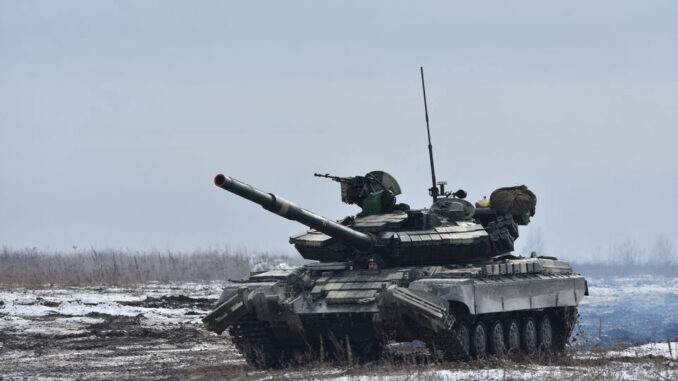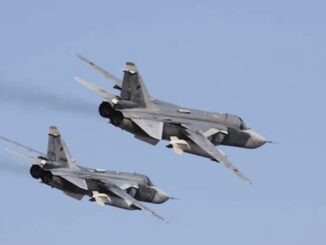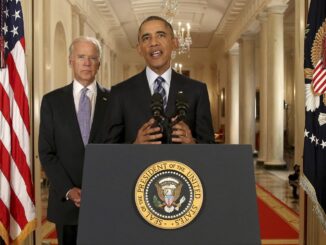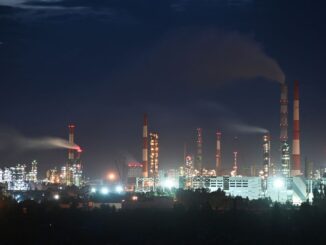
ENB Publishers Note: This confirms last month’s meetings with China and Russia surrounding the new energy agreements. The new agreements from China solidify the Russian indifference to sanctions by the world. This is the same move the Iranians have done to successfully protect against the U.S. sanctions. The pattern shows a strong desire from China to realign the world’s leadership against the United States. They are moving now because of the weak political stance of the current administration. What this means to energy: “All energy will continue to go up around the world”. Power is shifting in the world.
China would back Russia diplomatically and perhaps economically if it invades Ukraine, worsening Beijing’s already strained relations with the West, but would stop short of providing military support, experts said.
U.S. President Joe Biden said on Friday that Russia’s Vladimir Putin had decided to invade Ukraine within days, a claim Russia denies.
China’s foreign ministry has repeatedly blamed the United States for “spreading false information” and creating tensions, urging it to respect and address Russia’s demands for security guarantees.
In a show of solidarity, Putin visited Beijing for the Feb. 4 opening ceremony of the Olympics, declaring with Chinese counterpart Xi Jinping a deepening “no limits” strategic partnership. Chinese state media said the two countries stood “shoulder to shoulder in upholding justice in the world”.
A Russian invasion into Ukraine would test China’s resolve to put those supportive words into action, especially given China’s oft-stated foreign policy principle of non-interference.
China almost certainly would not want to be involved militarily, experts familiar with Beijing’s thinking say.
Although China and Russia have moved beyond “marriage of convenience” to a quasi-alliance, relations between the giant neighbors are far from a formal alliance requiring one to send troops should the other face threats, said Shi Yinhong, an international relations professor at Renmin University.
China has consistently called for the Ukraine crisis to be resolved peacefully through dialogue.
“Just as China does not expect Russia to help it militarily in the case of war over Taiwan, Russia does not expect China to help militarily over Ukraine, nor does it need such help,” said Li Mingjiang, associate professor at the S. Rajaratnam School of International Studies in Singapore.
VOTING NO
Instead, China would show it is a reliable friend by not joining the international chorus of condemnation if Russia invades Ukraine.
China was the only country to vote with Russia last month in a failed bid to stop the 15-member U.N. Security Council from the meeting, at the request of the United States, on Russia’s troop build-up on Ukraine’s borders.
That went further than in 2014, when China abstained from voting on a U.S.-drafted Security Council resolution urging countries not to recognize Russia’s annexation of Ukraine’s Crimea region.
Experts also said China could expand economic cooperation with Russia that would blunt the impact of sanctions promised by the West if there is an invasion.
After Russia’s invasion of Crimea, several Chinese state banks, including China Development Bank and the Export-Import Bank of China provided loans for Russian state-owned banks that were sanctioned by the West.
NOT A WAR IT WANTS
China would prefer that Russia not invade Ukraine.
“With the international world so polarised, it’s possible the United States and the West would be unified in isolating or sanctioning China together with Russia,” said Shi.
Earlier this month, U.S. State Department spokesman Ned Price said Chinese companies would face consequences if they sought to evade any export controls imposed on Moscow in the event of a Russian invasion of Ukraine.
A person familiar with U.S. thinking told reporters the technology-related sanctions and export controls that Washington is planning with allies is beyond China’s ability to backfill.
“We are prepared to take actions against any foreign country or entity that would circumvent those,” said the person.
Beijing also does not want the headache of the economic fallout of a Russian invasion of Ukraine, especially in a year when Xi is poised to secure an unprecedented third term in office, prioritizing stability.
An invasion would also show that China’s repeated calls for all sides including Russia to resolve the Ukraine crisis peacefully have fallen upon Putin’s deaf ears, raising doubts about its effectiveness as an interlocutor, said Shi.



